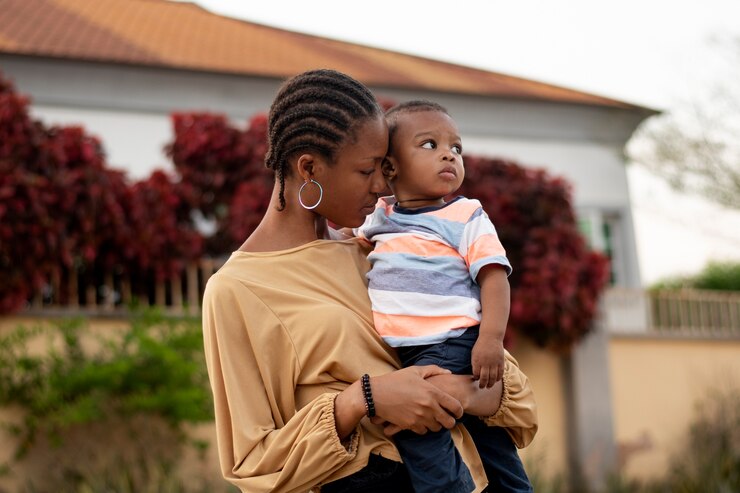Socioeconomic disparities continue to be a significant challenge for South African society, particularly for mothers and children. These disparities, rooted in historical and systemic factors, have far-reaching consequences on the well-being and opportunities of mothers and their children. From limited access to quality healthcare and education to inadequate living conditions and economic opportunities, socioeconomic disparities create significant barriers that perpetuate inequality and hinder the overall development of South African families.
One of the most prominent impacts of socioeconomic disparities on South African mothers and children is limited access to quality healthcare. Mothers from disadvantaged backgrounds often face challenges in accessing prenatal care, essential vaccinations, and regular check-ups for their children. This lack of access can lead to higher rates of maternal and child mortality, increased risk of preventable diseases, and poorer health outcomes overall. Addressing these disparities requires targeted efforts to improve healthcare infrastructure, increase accessibility, and provide comprehensive support for maternal and child health.
Education is another area greatly affected by socioeconomic disparities. Children from disadvantaged backgrounds often face barriers to accessing quality education due to factors such as limited resources, overcrowded classrooms, and a lack of educational facilities. This can perpetuate cycles of poverty and limit opportunities for upward mobility. Providing equitable access to quality education for all children, regardless of socioeconomic background, is essential for breaking these cycles and fostering a more inclusive society.
Economic disparities also have a profound impact on South African mothers and children. Poverty rates are disproportionately high among women-headed households, making it challenging for mothers to provide for their families’ basic needs. Limited economic opportunities, unequal pay, and a lack of job security further exacerbate the challenges faced by mothers in disadvantaged communities. These economic hardships have long-term consequences for children, affecting their access to nutrition, healthcare, and educational resources. Addressing these disparities requires a multi-faceted approach that includes job creation, skills development, and support programs aimed at empowering women economically.
Inadequate living conditions are another consequence of socioeconomic disparities. Many South African mothers and children living in impoverished areas face inadequate housing, lack of access to clean water and sanitation, and unsafe environments. These conditions pose significant health risks and hinder the overall well-being and development of families. Investments in infrastructure development, affordable housing initiatives, and community support programs are necessary to improve living conditions and create safer environments for mothers and children.
The impact of socioeconomic disparities on South African mothers and children extends beyond immediate health and living conditions. It also affects their social and emotional well-being. Mothers facing economic hardship and limited opportunities may experience increased stress, anxiety, and mental health challenges. Children growing up in disadvantaged environments may face higher levels of trauma, limited access to support systems, and reduced opportunities for social and emotional development. Comprehensive support systems, including mental health services, community programs, and social safety nets, are crucial for addressing these challenges and promoting holistic well-being.
Addressing socioeconomic disparities requires a comprehensive and collaborative effort from government, civil society organizations, and the private sector. Policies and interventions aimed at reducing poverty, improving access to quality healthcare and education, promoting gender equality, and creating economic opportunities for women can significantly impact the lives of South African mothers and their children. Additionally, there is a need to challenge systemic inequalities, advocate for social justice, and prioritize the rights and well-being of marginalized communities.
In conclusion, socioeconomic disparities have a profound impact on South African mothers and children, perpetuating inequality and hindering overall development. Addressing these disparities requires a multi-dimensional approach that focuses on improving access to quality healthcare and education, creating economic opportunities, enhancing living conditions, and promoting social and emotional well-being. By investing in the well-being of mothers and children, South Africa can build a more equitable and inclusive society that empowers all families to thrive.










